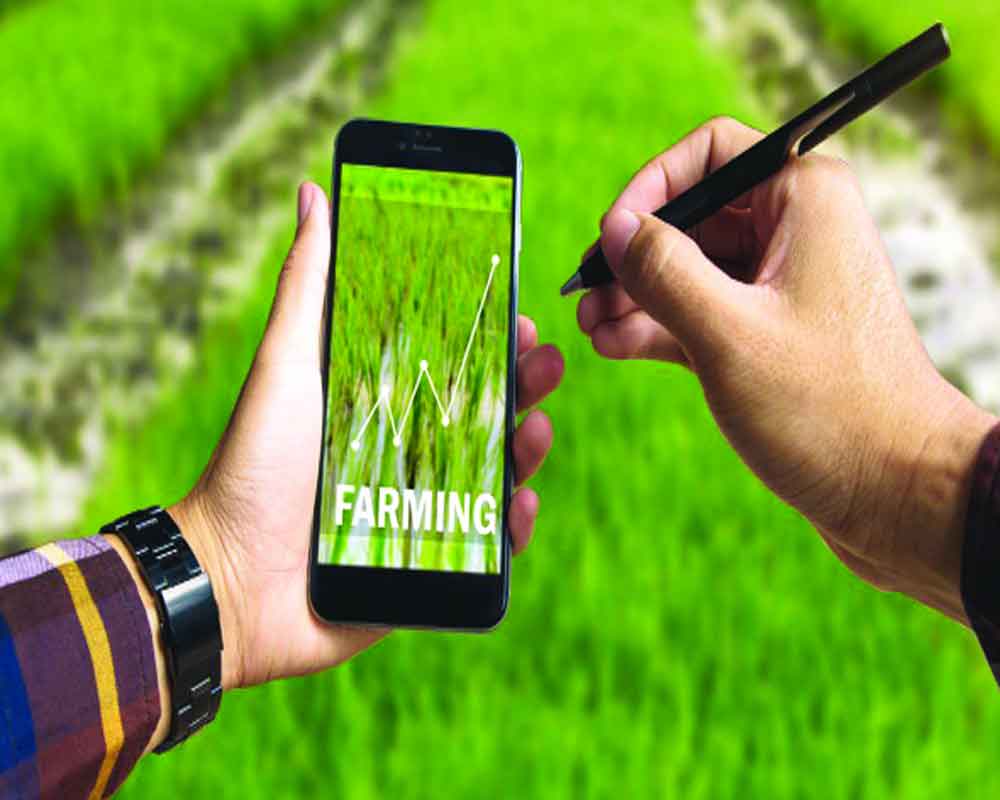By boosting productivity, promoting sustainability and reducing environmental impact, these technologies offer a pathway for sustainable future
As the global population heads toward an estimated 10 billion by 2050, the agricultural sector faces mounting pressure to significantly increase food production. For India, with its vast and diverse agricultural landscape, this presents a critical challenge. Traditional farming methods alone will not be enough to meet the needs of a growing population while also addressing the threats posed by climate change, dwindling natural resources and the imperative for sustainable practices. In this context, agri-tech, the convergence of technology and agriculture, offers a transformative pathway forward. By integrating cutting-edge digital technologies into farming, India has the potential to enhance productivity, sustainability, and resilience. This article explores how these emerging technologies are reshaping the agricultural sector in India, positioning it to meet the demands of the future.
Agriculture at a Crossroads
: For decades, agriculture has been the backbone of India's economy, employing over 50 per cent of the workforce and contributing significantly to GDP. However, the sector is now facing unprecedented strain. The growing population, along with environmental challenges such as erratic weather patterns, water scarcity, and soil degradation, has placed the industry at a critical juncture. The traditional methods of farming are no longer sufficient to meet the increasing demand for food while preserving the environment. This is where agri-tech comes into play, providing innovative solutions that can transform Indian agriculture by improving efficiency and promoting sustainable practices.
Precision Agriculture: Data-Driven Farming: One of the most promising advancements in agri-tech is precision agriculture, which leverages technologies such as GPS, IoT sensors, and drones to optimise farming operations. By gathering and analysing real-time data on factors like soil health, weather conditions, and crop growth, precision agriculture enables farmers to make informed decisions. This approach helps in the efficient use of water, fertilisers, and pesticides, minimising waste and environmental harm while maximising crop yields.
In India, the adoption of precision agriculture is accelerating. According to the Indian Council of Agricultural Research (ICAR), these techniques have the potential to increase yields by 15-25 per cent while reducing input costs by 10-15 per cent. The precision agriculture market in India is expected to grow significantly, from USD 57.6 million in 2020 to USD 124.2 million by 2025. Government initiatives like the Pradhan Mantri Krishi Sinchayee Yojana (PMKSY) for water conservation and the Soil Health Card Scheme for better fertiliser management are further driving this growth.
AI and Machine Learning: Artificial Intelligence (AI) and Machine Learning (ML) are also playing a crucial role in modernising Indian agriculture. By analysing vast amounts of data from satellite imagery, weather forecasts, and historical crop performance, AI algorithms can predict potential problems like pest outbreaks and suggest the best times for planting. AI-powered platforms are already being used to predict pest infestations and optimise pesticide use, potentially reducing the need for harmful chemicals by up to 30 per cent.
Ensuring Transparency: Blockchain technology is emerging as a revolutionary tool in agricultural supply chains. By offering a decentralised ledger for recording transactions, blockchain ensures transparency, reduces fraud, and promotes fair trade practices. For farmers, suppliers, and consumers alike, blockchain provides verifiable information about the origin and journey of food products, ensuring adherence to sustainability standards. The blockchain market in India's agriculture and food supply chain is expected to grow at a CAGR of 47.8 per cent, reaching USD 289 million by 2027.
IoT and Smart Farming: The Internet of Things (IoT) is revolutionising how farmers monitor and manage their crops. IoT devices, such as soil moisture sensors and weather stations, provide real-time data on environmental conditions, allowing for better decision-making in the field. For example, smart irrigation systems can adjust water usage based on real-time data, saving water and improving crop health. The IoT in agriculture market in India is projected to reach USD 634.5 million by 2027, growing at a CAGR of 12.5 per cent.
Use ofDrones: Equipped with high-resolution cameras and sensors, drones provide farmers with detailed aerial imagery of their fields. This helps in identifying issues such as nutrient deficiencies, pest infestations, and water stress. Farmers can then take targeted actions, reducing waste and environmental damage. The use of drones in Indian agriculture is expected to grow substantially, with the market anticipated to reach USD 108 million by 2025.
(The writer is chief growth officer with Arahas Technologies; views are personal)


























